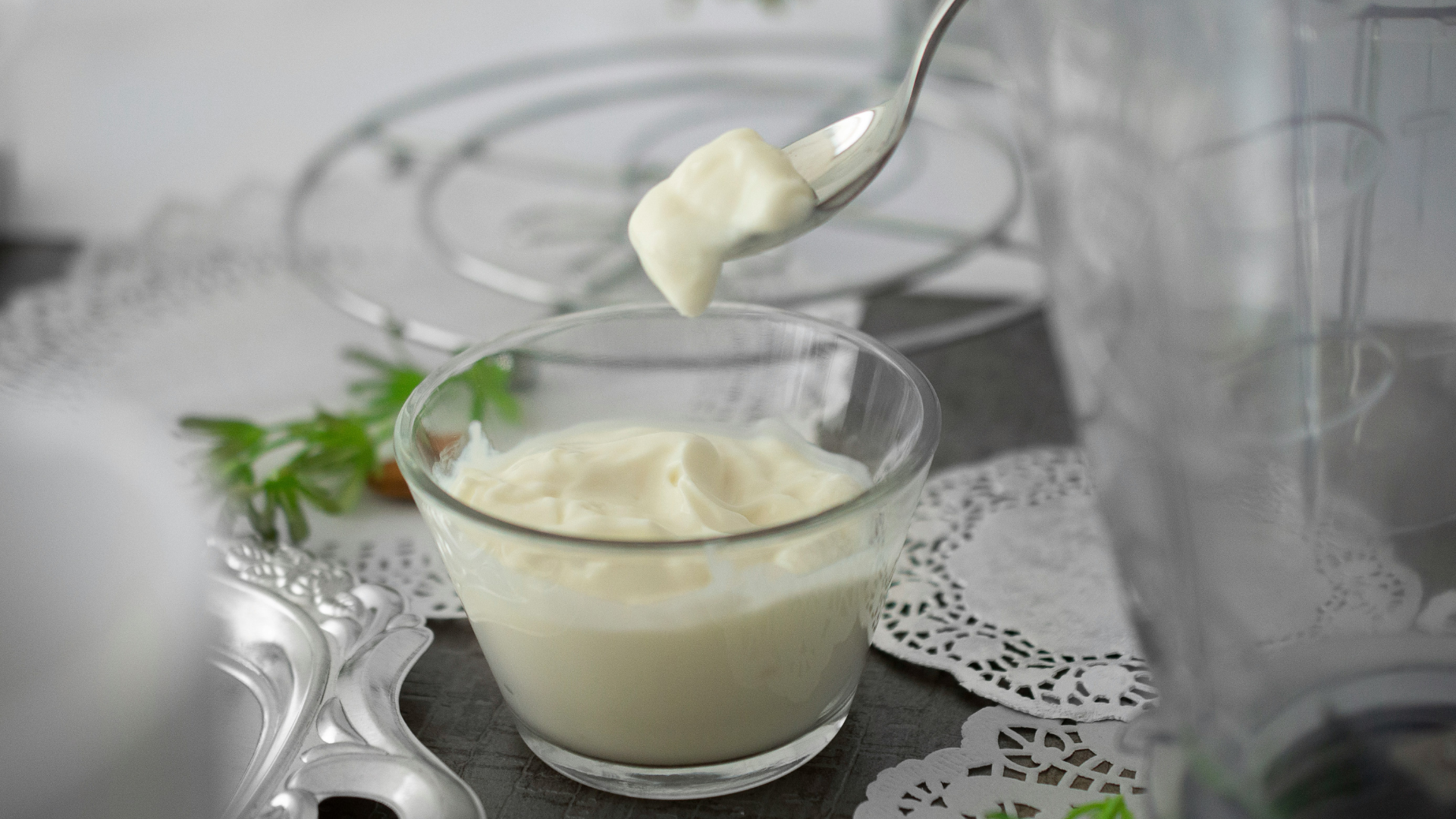Mayonnaise: The Good, The Bad, And The Alternatives

Healthy eating can be confusing. If you search “Is mayonnaise good for you,” in the search engine that rhymes with Moogle, the AI answer is “It is both healthy and unhealthy,” and to a certain degree I agree. It’s often villainized as an indulgent condiment, but if prepared or sourced correctly--it’s full of nutrient-packed ingredients that only add to the nourishment of your plate and day. But be careful--as with any calorie-laden food, it’s essential to practice moderation. Let’s get into it.
The Good
You might be surprised to learn mayo is chock-full of potential benefits:
Brands We Love
Check out our favorite BBQ essentials for a holistic overview.
- Sir Kensington’s Organic Mayo - A cheap and healthier alternative to mayonnaise that actually tastes good (we all know "healthy alternatives" are sometimes not so yummy!) is the Sir Kensington's Classic or Avocado Oil Mayo! It's dairy free, non-GMO, made with organic humane cage-free eggs, and tastes amazing on burgers, in macaroni/potato/tuna salad, and any other mayo-infused staple at your summer BBQ!
- Primal Kitchen Mayo - This popular, paleo-friendly mayonnaise made with high-quality, real-food ingredients that is set apart from the rest with it’s fantastic ingredient list including avocado oil, pasture-raised egg yolks, organic lemon juice (fresh squeezed!), and unrefined sea salt.
- (Insert your name here)’s freshmade mayo - You can make a delicious, homemade mayo in just a few simple steps. Make sure you’re sourcing the best ingredients you can get your hands on and add lots of love while preparing.
- Ingredients:
- 2 egg yolks (organic, pasture-raised, and free range)
- 1 tablespoon lemon juice or vinegar (organic or homegrown if possible)
- 1/2 cup neutral-tasting oil (avocado, grapeseed, or light olive)
- Sea salt (to taste)
- Instructions:
- In a medium bowl, whisk egg yolks and lemon juice until smooth.
- Slowly pour oil into bowl while continuously whisking.
- Keep whisking until mixture thickens (about 5-7 minutes).
- Add salt to taste.
- Refrigerate for at least 30 minutes.
- Enjoy!
- Ingredients:
The Bad
While mayo can be a tasty addition to meals, excessive consumption can negatively impact health. Moderation and opting for healthier alternatives are essential.
High Calorie and Fat Content:
- Mayo is pretty dense as far as calorie count (90-100 per tablespoon) and fat content (10-12g). Make sure you’re practicing moderation to avoid excess calorie intake, which can lead to weight gain, inflammation, and incidence of disease.
Cholesterol and Heart Health Concerns:
- May raise LDL (bad) cholesterol, potentially increasing heart disease risk.
- Saturated fats in mayo may increase blood pressure and cardiovascular risk.
Other Health Concerns:
- Omega-6 imbalance: Mayo's high omega-6 fatty acid content may lead to inflammation if consumed in excess.
- Sodium content: If you’re sensitive to excess sodium, keep an eye on the sodium content of the mayo you choose (or better yet, make your own!). Mayo contains 70-100mg of sodium per tablespoon.
- Potential allergens: Eggs, a primary ingredient, can cause allergic reactions.
Brands To Avoid
- Kraft Mayonnaise (an oldie, and probably not a goodie)
- Hellmann's Mayonnaise (we know, it’s a fave---but not our fave unfortunately)
- Miracle Whip (no…just, no)
Mayo Alternatives
While mayo is certainly delicious, it’s often not the star of the show as far as flavor is concerned. Consider these similar condiments as alternatives in your next potato salad or turkey sandwich:
The Takeaway
Ultimately, moderation is the key to enjoying mayo without compromising our health and well-being. By opting for healthier alternatives, being mindful of portion sizes, and balancing our diets with whole foods, we can savor the flavor of mayo without sacrificing our health.
So go ahead, spread a layer on your sandwich or dip those veggies - just remember to do it responsibly. Your taste buds and body will thank you.
Eating mayo daily can be safe if done in moderation (1-2 tablespoons). Excessive consumption can lead to high calorie and fat intake, potentially harming heart health.
Nope! Mayo's high calorie and fat content make it a weight loss enemy. Enjoy it sparingly or opt for healthier alternatives.
Yes! In fact, it’s typically the healthier (and therefore safer) option. Homemade mayo is generally safe if made with fresh, clean ingredients and proper handling. Use pasteurized eggs or egg yolks to minimize salmonella risk. Refrigerate promptly and consume within a week.
View More At Our Store
Purchase personally curated supplements
and Dr. Will Cole’s books!

The information on this website has not been evaluated by the Food & Drug Administration or any other medical body. We do not aim to diagnose, treat, cure or prevent any illness or disease. Information is shared for educational purposes only. You must consult your doctor before acting on any content on this website, especially if you are pregnant, nursing, taking medication, or have a medical condition.
Our content may include products that have been independently chosen and recommended by Dr. Will Cole and our editors. If you purchase something mentioned in this article, we may earn a small commission.

BY DR. WILL COLE
Dr. Will Cole, DNM, IFMCP, DC is a leading functional medicine expert who consults people around the globe, starting one of the first functional medicine telehealth centers in the world. Named one of the top 50 functional and integrative doctors in the nation, Dr. Will Cole provides a functional medicine approach for thyroid issues, autoimmune conditions, hormonal imbalances, digestive disorders, and brain problems. He is also the host of the popular The Art of Being Well podcast and the New York Times bestselling author of Intuitive Fasting, Ketotarian, Gut Feelings, and The Inflammation Spectrum.

Gut Feelings
Healing The Shame-Fueled Relationship
Between What You Eat And How You Feel
